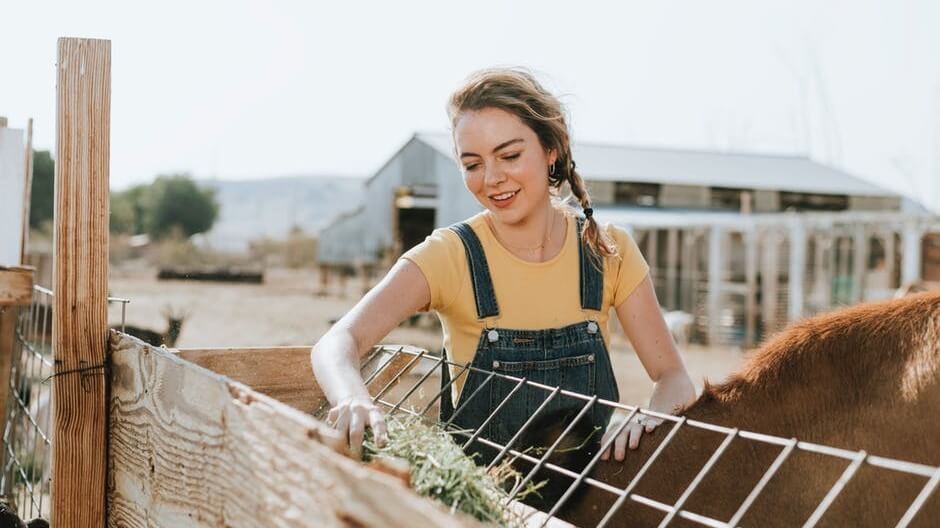As more and more consumers opt to eat plant-based foods for their health, the environment, and for the animals, meat and dairy industries are suffering. Some farmers are accepting that the future is beginning to look vegan, and they’re changing their lives and their farms to match.
In a section on its website named “Sowing Change,” animal advocacy nonprofit Free From Harm documents the stories of those who have decided to live and work cruelty-free. According to the site, these farmers now recognize that “humane” farming can only ever involve the farming of crops and not the exploitation of animals in any form.
According to the site, the farmer’s profiles “are hope-filled proof that even those who stand to lose most by renouncing animal exploitation are capable of a massive change of heart.”
For some, like Marloes Boere who grew up on a farm in the Netherlands, it was watching the heartbreaking separation of mother cows and calves in the dairy industry that encouraged the shift to veganism.
Boere writes in her profile, “I am horrified that we live in a world that teaches children it is acceptable to invade and exploit motherhood in such a violent way. No one should support this. Mother’s milk is baby food and cow’s milk is for baby cows.”
For others, like former beef farmer Renée King-Sonnen, it was watching friendships form and be torn apart when cows are divided and then loaded up for auction and slaughter. King-Sonnen now runs a farm sanctuary – on the same land she used to farm cows for meat – where she rescues cows, pigs, chickens, and other farm animals in need.
As well as documenting the ethical epiphanies of former meat and dairy farmers, Free From Harm aims to educate consumers on the health and environmental benefits of going vegan. It also highlights the positive benefits a global reduction in animal agriculture could have for the human race; if there were less factory-farmed animals to feed, more crops would be available to feed the growing population.
The Sowing Change section of the Free From Harm website is consistently growing, with profiles regularly added from farmers all over the world, who – like former dairy farmer Cheri Ezell – have stopped exploiting animals for monetary gain.
Ezell states in her profile, “There is now for me a very clear distinction between humane farming and inhumane farming. Humane farming is cultivating a plant-based diet. Inhumane farming is breeding any sentient being for production and consumption.”
Become a CLUBKINDLY member today!



